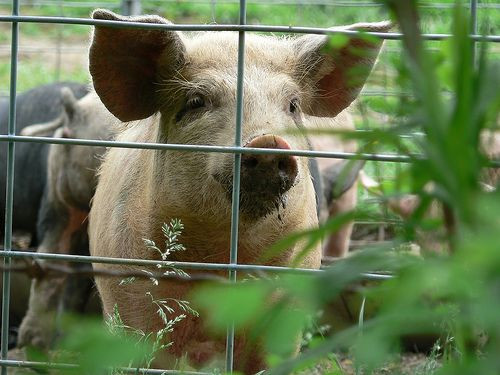Human Organs Grown In Animals? Pancreas Transplant Could Bring Relief To Millions With Diabetes Within 12 Months, Say Japanese Scientists

Japan is making waves around the world as the country's government appoints a panel of experts and scientists to head the effort of growing human organs in animals.
The scientists say mostly pigs will be involved in the process at first, which will take human stem cells and implant them in the embryo of a pig, followed by implanting that embryo in the pig's womb. Scientists say they've already developed the technique to perform this procedure — and that they've tested it on rats and mice. They now need the government's permission to implant the embryo into an animal, a process that will take upwards of a year to finalize.
Many diseases that humans face because of failing organs could potentially be eradicated if the implant proves successful. The scientists will begin their tests by growing a pancreas, as they say it is a relatively easy organ to create. For people suffering from type 1 diabetes, a new pancreas could mean a rehabilitated life. People with type 2 diabetes would not be helped by a new pancreas due to the body's inability to process insulin, as opposed to merely not producing it in type 1.
"This recommendation is a very important step forward and one that has taken us three years to achieve," Professor Hiromitsu Nakauchi, head of the center for stem cell biology and regenerative medicine at the University of Tokyo, told the Daily Telegraph.
If Nakauchi and his team perfect the pancreas transplant, the innovation "will bring relief to millions of people with diabetes" in as little as five years. Nakauchi said developing other vital organs, such as kidneys and hearts, is feasible but still substantially harder.
The Japanese scientists have high hopes for the technique. They plan one day to harvest multiple organs within the same animal, so that when the animal goes to slaughter, it can be used to help several people at once.
The specific embryo used in the process is called a "chimeric embryo," which refers to the hybrid blend of human stem cells and the host animal's DNA. According to the Daily Telegraph, Japan's fervor in developing the process isn't shared by other countries, especially those who see the practice as unethical, unnatural, or patently unsafe. Some of the health concerns have justification.
Organ transplants do not always run as smoothly as they seem in theory. While the pig technically is growing a human pancreas, the pancreas is still foreign to the human recipient's body, so there's a possibility for rejection. To prevent this, doctors often give their patients immunosuppressive drugs to calm the body's response to the foreign organ. Sometimes, the side effects of these drugs are worse than the disease the organ cured.
Currently, scientists in Japan can only perform the embryonic cell tests in laboratory conditions for a maximum of 14 days. Implanting these cells into an animal's womb is still prohibited.
"We can apply the same principles to human stem cells and pigs, although the guidelines have not permitted us to do this yet," said Nakauchi. Once they receive the go-ahead, he believes the first pig can begin growing the chimeric cells "quite quickly, because the technique has been established already."
Published by Medicaldaily.com



























